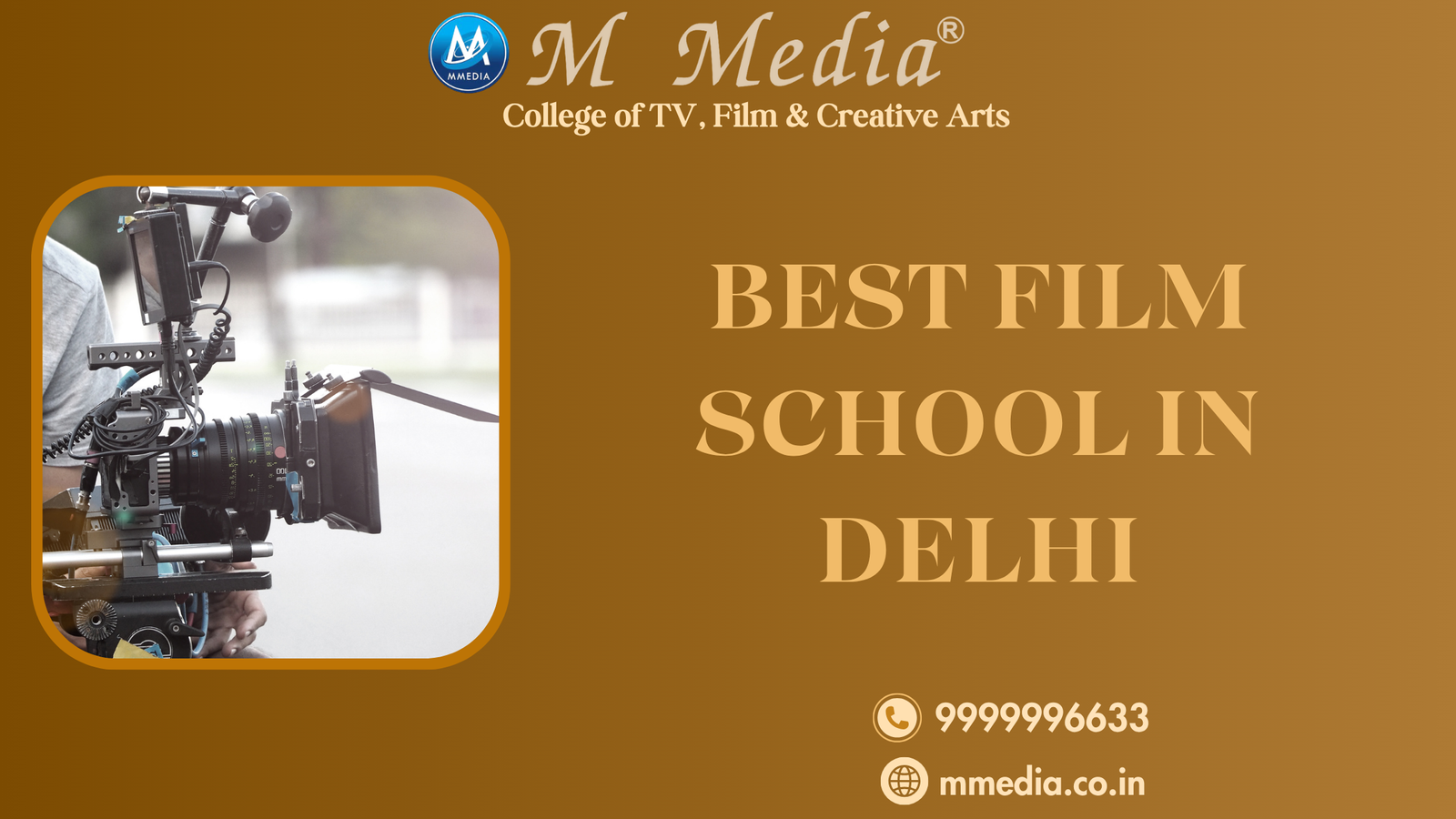
Choosing the right film school is one of the most important decisions for aspiring filmmakers, directors, cinematographers, editors, or producers. A film school is not just a place to learn camera angles and scriptwriting-it’s a creative hub where talent meets technique, and passion turns into profession. The best film school provides a perfect combination of academic excellence, hands-on training, access to industry-standard equipment, mentorship from experienced professionals, and the opportunity to build a network within the film industry.
The best filmmaking school in Delhi is designed to turn raw creative passion into professional expertise. It offers a comprehensive blend of theoretical knowledge and hands-on training, covering every major aspect of filmmaking-such as directing, screenwriting, cinematography, editing, production, and sound design. Whether you’re an aspiring filmmaker, storyteller, or visual artist, this course provides you with the tools, techniques, and industry exposure needed to succeed in today’s fast-paced film and media world.
Led by experienced mentors and industry professionals, the course focuses on building both creative and technical skills. Students work on real projects using industry-standard equipment, developing a professional portfolio along the way. In addition to core filmmaking principles, the course also covers emerging trends like digital content creation, OTT platforms, and short-form storytelling. Ideal for beginners and intermediate learners alike, this course not only teaches you how to make films—it prepares you to build a successful career in the global entertainment industry.
IMPORTANCE:
In today’s fast-evolving world of entertainment, storytelling is at the heart of every successful film, show, or digital content. A film school plays a vital role in shaping the next generation of storytellers, directors, editors, cinematographers, screenwriters, and producers. While some believe talent alone can take you far, the structured training, professional environment, and practical exposure provided by a film school give aspiring filmmakers a strong head start in the competitive film and media industry.
One of the biggest advantages of attending film school is the systematic learning it offers. Filmmaking is both an art and a technical craft. While passion and creativity are essential, understanding camera operations, lighting techniques, editing software, screenplay formatting, sound design, and production logistics requires professional guidance. Film school offers structured courses that teach the essential tools and techniques in a clear and progressive way, from the basics to advanced levels.
Another major benefit is hands-on experience. In a good film school, students don’t just study theory-they actively make films. From short films and documentaries to music videos and experimental pieces, students work on real projects with professional-grade equipment. This helps them gain confidence and build a practical skillset that’s essential for real-world filmmaking.
Film schools also promote collaboration, which is a core part of any successful production. Filmmaking is a team effort that involves writers, directors, actors, camera operators, sound engineers, editors, and more. In school, students from various specializations work together just like on a professional film set. This collaborative experience prepares them for the teamwork required in the industry and helps build strong connections that often last beyond graduation.
The mentorship and guidance from experienced faculty is another key factor in the importance of film schools. Professors and guest lecturers are often industry professionals-filmmakers, editors, producers, screenwriters-who share real-life insights and provide constructive feedback. Their mentorship can help students find their voice, improve their technique, and understand industry expectations.
Attending film school also provides students with exposure to the business side of filmmaking, which many self-taught creators may overlook. Topics like budgeting, pitching, marketing, film distribution, and copyright laws are often included in the curriculum. Understanding these areas is crucial for filmmakers who want to turn their creative work into a successful career.
Another important reason film school matters is the access to opportunities it creates. Many top schools have tie-ups with film festivals, production houses, and studios. Students often get the chance to submit their work to competitions or participate in internships, leading to real job offers. Some student projects are even picked up by festivals or streaming platforms, providing a launching pad for future careers.
The alumni network of a reputed film school is also invaluable. Many successful filmmakers, writers, and technicians come back to recruit, collaborate, or mentor. This network opens doors for job placements, freelance work, and industry connections that are difficult to access without a formal education in film.
In the digital age, film schools have adapted by including training in new media formats such as web series, short-form content, virtual reality (VR), augmented reality (AR), and mobile filmmaking. This equips students to work not only in traditional film and television but also in modern platforms like YouTube, OTT platforms, and social media.
BENEFITS:
1. Comprehensive Learning Environment
One of the most important benefits of film school is the structured and focused learning environment. Students learn every aspect of filmmaking-from storytelling, screenwriting, and directing to camera work, editing, sound design, and post-production. You’re not just learning theory, but actually applying it in real projects. This helps in developing a solid foundation and mastering the technical and creative sides of filmmaking.
2. Hands-On Experience with Professional Equipment
Film schools provide access to high-end equipment such as cameras, lights, editing software, sound gear, and studios. This allows students to practice on tools used in the real industry, giving them confidence and technical proficiency. Learning how to handle professional equipment under the guidance of experts is something that self-learning often lacks.
3. Mentorship from Industry Professionals
In film schools, the faculty usually includes experienced professionals, award-winning filmmakers, and industry veterans. Their guidance and real-world insights can help students improve their craft and avoid common mistakes. Personal feedback and mentorship can be extremely valuable in shaping your career and creative voice.
4. Creative Collaboration and Teamwork
Filmmaking is a team effort, and film school gives you the chance to collaborate with students from different specializations—directors, actors, editors, writers, and cinematographers. You learn how to work as part of a team, communicate ideas effectively, and handle responsibilities. These collaborative experiences mirror real-world film production and help you build strong interpersonal and leadership skills.


